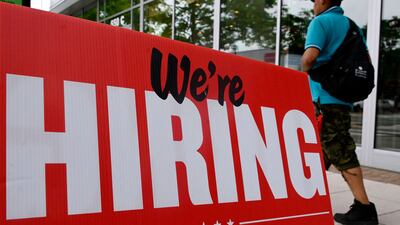Tech companies are not yet increasing recruitment after massive layoffs over the past year, despite a surge in interest in artificial intelligence that requires workers with special skills.
Still, job cuts in the tech industry appeared to slow in June and July and are on track to be even lower this month, according to analysis by research company Jefferies, citing proprietary data as well as that from job marketplace TrueUp.
The tech sector had some of the earliest and steepest workforce reductions as the economic downturn forced companies to cut costs and eliminate a glut of staffing created during the pandemic boom.
So far this year, there have been 342,671 layoffs in the tech industry, according to Jefferies and TrueUp, well beyond the 243,075 for all of last year. Data from layoffs.fyi shows a similar trend.
The number of open jobs in the tech industry remains tepid, the data shows, mirroring trends in the broader economy that suggest some softening in demand for workers.
US job openings fell in June to the lowest level since April 2021, according to a government report this month. Layoffs also declined to the lowest since the end of the last year, suggesting employers are reticent to let go of staff.
“The shifting workforce dynamic will require lower-skilled workers who are being squeezed by AI to re-skill and up-skill for new job opportunities,” Jefferies analysts led by Brent Thill said in a note accompanying the analysis.
The nuances of the still-resilient labour market have made it difficult even for recruiting companies to predict annual earnings, as clients are “more cautious, more conservative, more tentative”, Keith Waddell, chief executive of international staffing company Robert Half, said on a recent earnings call.

